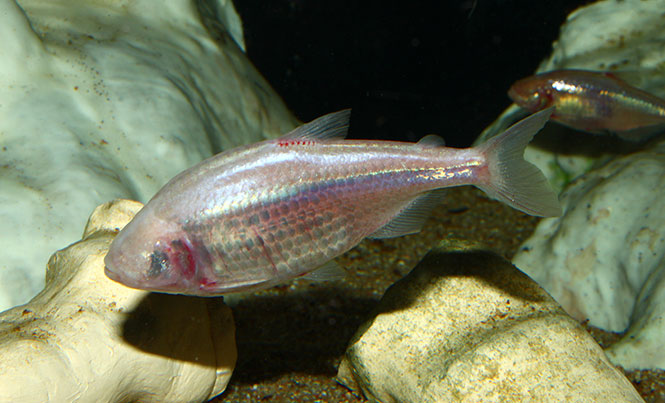
Adjusting to one’s environment is crucial for survival, and the Mexican blind tetra cavefish has mastered its life in the dark underwater caves of the Yucatan. Scientists believe that the tetra cavefish compensates for living in total darkness by not wasting precious energy on sight. To reduce energetic supplies used for vision, and parts of the brain used for sight, it has evolved as blind in exchange for heightened taste, hearing, smell and other senses which allow it to thrive in complete darkness.
This fish is omnivorous and will eat anything it can find. This includes animal carcasses, plants, aquatic insects, crustaceans, worms, snails, fish, and algae. The eyeless Mexican tetra fish loses its circadian metabolic rhythms, which is the internal body clock that tells the body when to sleep or eat. As it is affected by temperature and sunlight (or lack of) it allows them to save a lot of energy.
The creature has become popular in home aquariums, but the question is: will it regain its sight living above ground? The surface-dwelling sighted version of this species has adjusted to a human presence in its environment and has even learned to wait for cave divers, taking advantage of their lights and following them into caves in order to hunt.